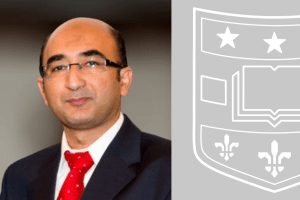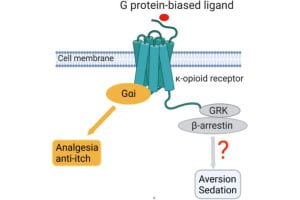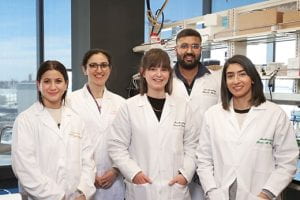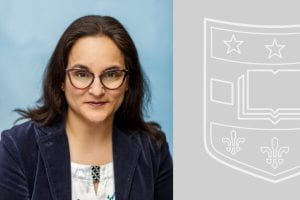New Research Promises Safer Opioid Alternatives
A research study led by Dr. Majumdar and his team, published in ACS Science Central on Wednesday, July 17, introduces a promising strategy for developing safer opioid medications.
Experimental drug supercharges medicine that reverses opioid overdose (Links to an external site)
As more powerful opioids keep appearing, a team of researchers have developed an experimental drug to make naloxone more lasting and potent.
Mimicking exercise with a pill (Links to an external site)
Associate Professor, Bahaa Elgendy, PhD, and his colleagues are working to recapitulate the benefits of exercise with a pill. This discovery could lead to a new way to treat muscle atrophy and other medical conditions in people, including heart failure and neurodegenerative disease.
Majumdar research highlighted by National Institute on Drug Abuse
The National Institute on Drug Abuse (NIDA) recently highlighted two papers featuring Susruta Majumdar, PhD, and his colleagues. The Chemistry and Pharmacology Branch of the Division of Neuroscience and Behavior highlighted these articles.
Study targets kappa opioid receptor to develop more effective drugs for pain management (Links to an external site)
In a study published in Nature Communications in March 2023, researchers from the Center for Clinical Pharmacology unveil promising research in the development of more effective, less addictive, and safer pain management drugs.
In this study “Molecular mechanism of biased signaling at the kappa opioid receptor,” researchers closely examined the κ-opioid receptor (KOR), a molecule in the body that can be targeted by drugs to help manage pain and itch without causing addiction.
Sarah Bernhard Receives 2023 Predoctoral Fellowship in Drug Discovery
Congratulations to Sarah Bernhard for receiving the 2023 Predoctoral Fellowship in Drug Discovery.
Majumdar Publishes Breakthrough Opioid Research in Nature (Links to an external site)
Groundbreaking research conducted by Susruta Majumdar, Ph.D., associate professor of medicinal chemistry and pharmacology at University of Health Sciences and Pharmacy in St. Louis, and his colleagues, has identified a method for modifying the chemical properties of the opioid pain reliever, fentanyl, and altering how it binds to opioid receptors on nerve cells.
Through studies conducted in cell lines expressing the opioid receptor and in mice, the modified version of fentanyl was found to be an effective pain reliever with fewer significant side effects. The research, which was recently published in the journal Nature, offers potential avenues for the creation of safer opioid medications.
Majumdar Featured in Nature Chemical Biology
The paper highlights the work of Susruta Majumdar, Ph.D., associate professor of medicinal chemistry and pharmacology at University of Health Sciences and Pharmacy in St. Louis, and his colleagues who examined the molecular differences between LFT and MP, and how they bind to MU opioid receptors.
Elgendy and Hegazy Receive $3.1 Million NIH Grant to Support Chronic Pain Research (Links to an external site)
Bahaa Elgendy, Ph.D., associate professor of medicinal chemistry at University of Health Sciences and Pharmacy in St. Louis and Lamees Hegazy, Ph.D., associate professor of computational and medicinal chemistry at UHSP, were the recent recipients of a $3.1 million grant from the National Institutes of Health’s National Institute of Neurological Disorders and Stroke to support research focused on the treatment of inflammatory pain.
The five-year grant will allow Elgendy and Hegazy, and their research collaborators, to further investigate the role of the REV-ERB nuclear receptors as a viable target for the treatment of inflammatory pain. Elgendy and Hegazy will leverage the known physiological functions of REV-ERB in chronic inflammation and use a chemical biology approach to identify novel REV-ERV ligands with superior pharmacological profiles, with the goal of advancing the potential therapy to clinical trials.
Al-Hasani Uncovers New Avenues to Treat Pain and Addiction (Links to an external site)
In 2017, Ream Al-Hasani, Ph.D., assistant professor of pharmaceutical science at University of Health Sciences and Pharmacy in St. Louis, and assistant professor of anesthesiology at Washington University School of Medicine in St. Louis, was recruited as one of the first researchers at the Center for Clinical Pharmacology. Since then, Al-Hasani and her center collaborators from the Department of Anesthesiology at the School of Medicine have been conducting groundbreaking research on the neurological effects of addiction and the brain’s response to pain or stress.
With much of her research focused on the kappa opioid receptor system and its potential to serve as a promising target for the non-addictive management of neuropsychiatric conditions, including pain, Al-Hasani has been engaged in a number of innovative projects, including her work to create new methods for measuring opioid peptides in living systems. Her efforts have resulted in the development of a reliable and reproducible process to allow other research labs to implement and benefit from this technique.
Pradhan Named Director of the Center for Clinical Pharmacology (Links to an external site)
Amynah Pradhan, Ph.D., an award-winning neuroscientist, has been appointed director of the Center for Clinical Pharmacology, effective Sept. 1, 2022. Pradhan joins the center from the Department of Psychiatry at the University of Illinois at Chicago, where she was faculty since 2013 and associate professor with tenure since 2019. At UIC, Pradhan also served as Director of the Graduate Program in Neuroscience since 2019.
As center director, Pradhan will lead the strategic planning efforts for all research growth and development, provide mentorship for trainees and faculty, foster a diverse and inclusive environment to stimulate new and exciting research endeavors, and continue to grow inter-institutional partnerships and collaborations as well as national recognition for the center.
Hegazy Receives $580,000 NIH Grant to Support Diabetes Research
Lamees Hegazy, Ph.D., assistant professor of medicinal chemistry at University of Health Sciences and Pharmacy in St. Louis, was the recent recipient of a three-year, $581,000 grant from the National Institutes of Health’s (NIH) National Institute of Diabetes and Digestive and Kidney Diseases.








